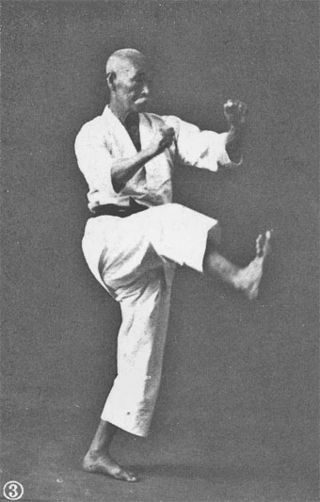
Karate (空手), also karate-do, is a martial art developed in the Ryukyu Kingdom. It developed from the indigenous Ryukyuan martial arts under the influence of Chinese martial arts. While modern karate is primarily a striking art that uses punches and kicks, ancient karate was an art that also used jujutsu techniques such as throwing and joint locking techniques. A karate practitioner is called a karate-ka (空手家).

Shotokan is a style of karate, developed from various martial arts by Gichin Funakoshi (1868–1957) and his son Gigo (Yoshitaka) Funakoshi (1906–1945). Gichin Funakoshi was born in Okinawa and is widely credited with popularizing "karate do" through a series of public demonstrations, and by promoting the development of university karate clubs, including those at Keio, Waseda, Hitotsubashi (Shodai), Takushoku, Chuo, Gakushuin, and Hosei.
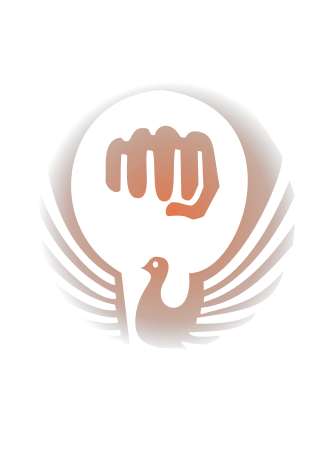
Wadō-ryū (和道流) is one of the four major karate styles and was founded by Hironori Ōtsuka (1892–1982). The style itself places emphasis on not only striking, but tai sabaki, joint locks and throws. It has its origins within Shindō Yōshin-ryū jujitsu then afterward Tomari-te (pre-Shotokan) karate, and was also influenced by Shito-Ryu.

Hironori Ōtsuka was a Japanese master of karate who created the Wadō-ryū style of karate. He was the first Grand Master of Wadō-ryū karate, and received high awards within Japan for his contributions to karate.
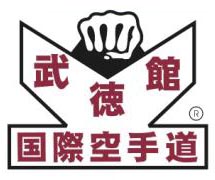
Gosoku-ryū (剛速流) is a style of karate which was founded by Takayuki Kubota. Gosoku stands for hard and fast, which suggests a combination of techniques both from the fast and dynamic Shōtōkan style as well as from the strength-focused Gōjū-ryū style.
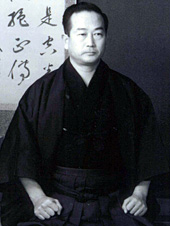
Masatoshi Nakayama was an internationally famous Japanese master of Shotokan karate. He helped establish the Japan Karate Association (JKA) in 1949, and wrote many textbooks on karate, which served to popularize his martial art. For almost 40 years, until his death in 1987, Nakayama worked to spread Shotokan karate around the world. He was the first master in Shotokan history to attain the rank of 9th dan while alive, and was posthumously awarded the rank of 10th dan.

Shindo Jinen Ryu (神道自然流) is a form of karate that was founded in 1933 by Yasuhiro Konishi.
Hirokazu Kanazawa was a Japanese master of Shotokan karate. He was the Chief instructor and President of the Shotokan Karate-Do International Federation, an organisation he founded after he left the Japan Karate Association (JKA). Kanazawa was ranked 10th dan in Shotokan Karate.
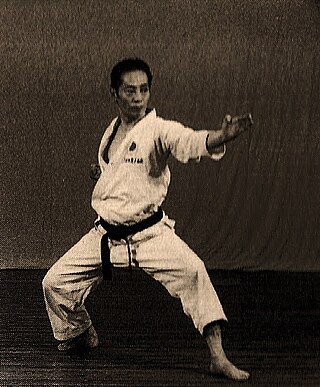
Tetsuhiko Asai was a prominent Japanese master of Shotokan karate of the Japan Karate Association (JKA), founder and Chief Instructor of the International Japan Martial Arts Karate Asai-ryu (IJKA), and founder of the Japan Karate Shoto Federation.
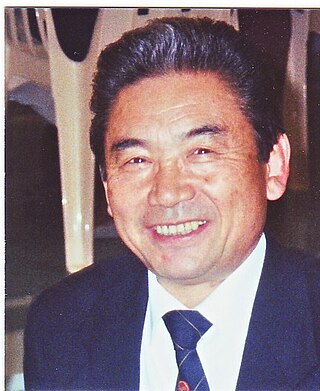
Takayuki Mikami is a Japanese master of Shotokan karate based in the United States of America. He holds the rank of 9th dan black belt in the art, awarded under the Japan Karate Association. In 1958, Mikami tied for first place in the All Japan Karate Championships. The following year, he became the All Japan champion in kumite (sparring) as well as kata (patterns). In 1961, Mikami won first place in kata again. He was also the first person to graduate from the Japan Karate Association's (JKA) instructor training program instituted by Gichin Funakoshi and Masatoshi Nakayama.

The Japan Karate Federation (JKF), a.k.a. Japan Karatedo Federation, is a national governing body of the sport karate in Japan. The JKF is officially affiliated with the Japan Olympic Association (JOC), World Karate Federation (WKF), Japan Sports Association (JSA), and Japanese Budō Association (JBA). The styles recognized by the JKF are Wadō-ryū, Shotokan, Shito-ryu, and Goju-ryu. Its headquarter is located in Tokyo, Japan.
Akio Minakami is a ninth Dan Karate practitioner of Hayashi-Ha Shitoryu-Kai, president of the United States Hayashi-ha Shitoryu-Kai, and a former professional martial arts competitor.

Kenkojuku is a style of Shotokan karate previous to the establishment of the Japan Karate Association (JKA) style. It was founded by Tomosaburo Okano. Kenkojuku karate is similar to the teachings of Gichin Funakoshi and modifications made by Funakoshi´s son Yoshitaka Funakoshi. JKA Shotokan differs slightly in that it was Masatoshi Nakayama's version of Shotokan. Okano's/Yoshitaka's Kenkojuku karate and JKA karate are becoming more similar compared to other variants of Shotokan karate such as Shigeru Egami's Shotokai, Hirokazu Kanazawa's Shotokan Karate International or SKI.
The Shotokan of England Karate Union (SEKU), founded in 1982 is a federation of Shotokan karate clubs in southern England, with about thirty clubs from Helston in Cornwall to Bromley in Greater London. The federation is led by Mick Dewey, 8th dan, who was a student of the late Keinosuke Enoeda.

Jitsumi Gōgen Yamaguchi, also known as Gōgen Yamaguchi, was a Japanese martial artist and student of Gōjū-ryū Karate under Chōjun Miyagi. He was one of the most well-known karate-dō masters from Japan and he founded the International Karate-dō Gōjū Kai Association.
Dave Kershaw is a Shotokan karateka from Grimsby, Lincolnshire. He was an international competitor, representing Great Britain at European and World Championships between 1982 and 1998, and was British Kata Champion for a record six consecutive years, from 1987 to 1992. He was a senior SKI (GB) Instructor and Examiner up until 2011, when he formed his own organisation: Konjaku Shin International.
Dov Sternberg is an American karateka.

John Fonseca is a former American karateka most known for being the first karate athlete in the world to win repeat gold medals at the Pan American Games, first American to medal at the Karate World Championships in almost 16 years (kumite), and first American to win the Paris Open in more than 30 years.

Karin Prinsloo is a South African karateka, gold medal winner of the 6th World Games (2001) in the under 60 kg Kumite category and Karate instructor formerly based in Durban, South Africa, now hailing from Perth, Australia. She is listed among the top 100 Karate competitors of all time.

Bōgutsuki Karate is one of the competition formats of Karate. It is also known as bōgu karate, bōgu-tsuki shiai (防具付試合), bōgu-tsuki kumite.















